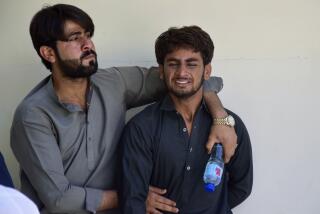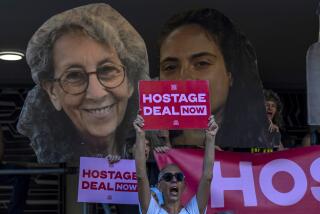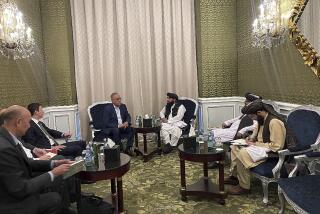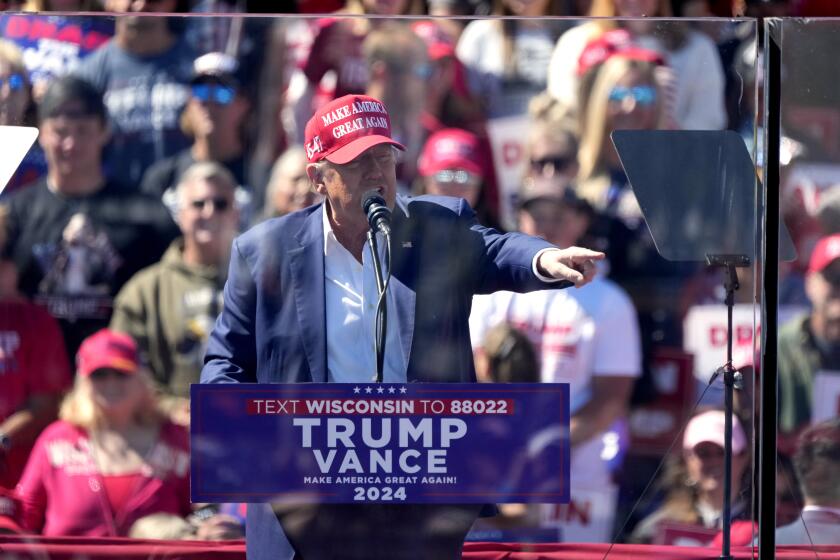India, Pakistan slam each other, apparently scuttling high-level meeting
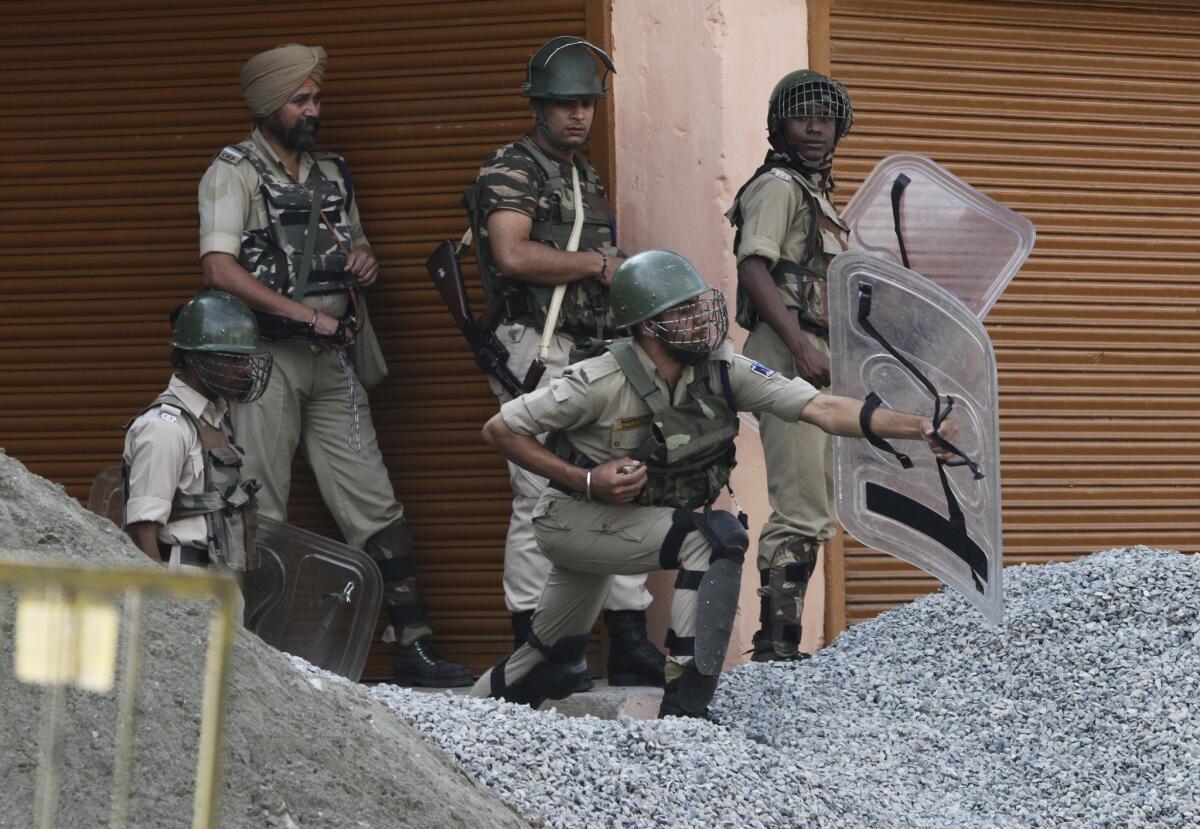
Indian paramilitary soldiers shield themselves as Kashmiris throw stones at them during a protest in the Indian-controlled portion of Kashmir on Friday. Kashmir, which is divided between India and Pakistan, remains a sticking point in efforts to improve relations between the two nations.
India and Pakistan traded brickbats Saturday ahead of a scheduled meeting between their national security advisers, the second straight year that high-level talks between the nuclear-armed neighbors seemed destined for collapse.
A day before the summit in India, officials held dueling news conferences in New Delhi and Islamabad, each accusing the other of sabotaging the meeting. Later Saturday, Pakistan appeared to call off the talks, with the foreign ministry issuing a statement saying the meeting “cannot be held on the basis of the preconditions set by India.”
India’s foreign affairs minister, Sushma Swaraj, had demanded that the Pakistani Embassy in New Delhi withdraw an invitation to a separatist group from the Indian-controlled portion of the disputed Kashmir territory to attend a reception on the sidelines of the summit.
In past years, Pakistani officials had held meetings with representatives of the separatist group, the All Parties Hurriyat Conference. But last year India’s current prime minister, Narendra Modi, canceled a summit between the countries’ foreign ministers after Pakistan’s ambassador to New Delhi met with Hurriyat leaders.
Pakistan’s national security adviser, Sartaj Aziz, rejected India’s demands, saying it could not control the guest list for the Sunday evening reception that he said would “enable me to meet a cross section of Indian political and business leaders.”
The war of words offered more drama than the talks were likely to produce. India-Pakistan relations remain tense as both countries accuse the other’s military forces of violating a cease-fire with cross-border attacks.
Since taking office 16 months ago, Modi has engaged in photo ops with his Pakistani counterpart, Nawaz Sharif, periodically raising hopes that the two countries, which have fought three wars since each gained independence from Britain in 1947, could begin to discuss the myriad security and diplomatic issues that divide them, mainly the status of Kashmir.
But Pakistan’s powerful military has shown signs of sidelining Sharif, leaving some in Modi’s government skeptical of engaging in talks.
India has accused Pakistan of trying to put the Kashmir issue on the agenda in New Delhi, where talks were said to be focused on terrorism-related issues. Indian officials accuse Pakistani militant groups of repeated attacks and have called on Islamabad to expedite the trial of suspects accused in the 2008 terrorist rampage in the Indian financial capital, Mumbai.
-----------
FOR THE RECORD
Aug. 22, 12:15 p.m.: An earlier version of this post said the Mumbai terrorist attack was in 2007. It was in 2008.
-----------
“If they don’t agree to restrict the agenda to terrorism and go ahead with meeting with Hurriyat … the talks will not happen,” said Swaraj, the Indian foreign affairs minister.
Aziz denied that Pakistan had changed the terms of the summit, saying the status of Kashmir remained “the most important outstanding issue between the two countries.”
“In Pakistan, not only the political leadership but the entire nation is fully committed to providing political, moral and diplomatic support to the Kashmiris struggling for their right to self-determination,” he said.
Follow @SBengali on Twitter for news out of South Asia
More to Read
Sign up for Essential California
The most important California stories and recommendations in your inbox every morning.
You may occasionally receive promotional content from the Los Angeles Times.
